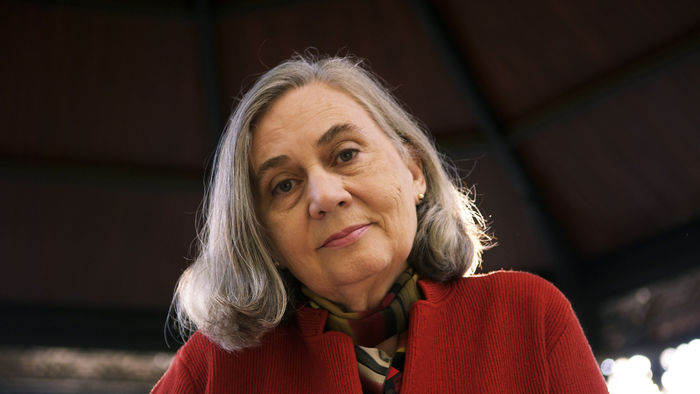Marilynne Robinson is a Pulitzer Prize-winning novelist and essayist, best known for her novels Gilead and Housekeeping as well as her writings on modern Christianity. She was named one of Time Magazine’s most influential people in 2016 and graduated from Brown University in 1966. Robinson currently teaches at the Iowa Writers’ Workshop.
What do you think the power of fiction is in a world that increasingly emphasizes empirical analysis?
I think we are too ready to characterize the world on the basis of what we might be seeing at any given moment, then to shape our lives and work around these assumptions, giving them a reality they would not have otherwise. A dominance of empirical analysis could be interpreted to mean that the ancient human craving for narrative is being starved and good fiction would be especially welcome. In fact, our culture is saturated now with fiction in the form of film and television drama. Very much that is represented as empirical would not bear scrutiny, being itself fictionalized by bias or commercialism. Any good book of any kind always has an honorable place, no matter what seems to be going on around it.
Why do you think religion has such a significant impact on American politics?
It saddens me to say that I see little evidence of actual religion in our politics now. I see factions who claim to be religious and who put the success of their particular faction far above the claims and obligations of religion. Faith, hope, and love are hardly qualities expressed in the conduct and language of those political figures who are most inclined to treat Christianity as if it were their personal property.
You have criticized American politics for being dominated by fear. You have also pointed out that America is a majority Christian country and fear is not a Christian frame of mind. Why do you think fear has co-opted both religious rhetoric and American political rhetoric?
I think this fear is largely a commercial product – highly paid loudmouths peddling dread and adrenaline, gold, and guns. They have insinuated themselves into the culture as journalists and political and religious figures and made a killing at it, exploiting the beautiful First Amendment to misinform and mislead the vulnerable.
In your essay, “Fear,” you cited the debate over gun laws and the Second Amendment as an example of unfounded fear driving policy. How do we overcome this fear in order to enact positive change?
We are in the middle of a great test of our culture and institutions. No doubt good minds are at work on these problems. One great help would be to end the obstruction of government, to put a stop to these recurring deadlocks and crises that make constitutional government look ineffective and unsustainable. Another would be to distribute wealth and economic activity more broadly through culture through better wages and development of infrastructure. Another would be to restore our magnificent public universities to the public by lowering tuition, so that they are the broad foundation of opportunity they were meant to be. Fear and resentment come most naturally to people who do not see a future for themselves. Sadly, they support those who work against their interests.
In recent years, Christianity has been used to justify an “us versus them” dichotomy in politics. Do you think this is a result of our political climate or some broader change in Christian values?
The history of Christianity is mingled, distracted, and corrupted by tribalism, which is at odds with its most basic teachings. Loving one’s neighbor is hard; loving one’s enemy is harder. But where there is no sign that the attempt is made, where Christianity becomes a pretext for hostility and judgmentalism, the religion is slandered by those who lay claim to it.
You have criticized the idea of “identity politics,” which implies membership with a specific group, preferring instead to acknowledge “the miraculous privilege of existence as a conscious being.” What would you say to marginalized groups that seek to find solidarity and understanding with people of shared identities?
Certainly marginalized people benefit from an awareness of themselves as a community. They should value their shared culture and assert their rights and interests. The problem enters when identity in this sense encourages the larger culture in the terrible habit of thinking of people primarily or exclusively in terms of gender, race, or ethnicity. That is the trap we all want to struggle out of.
Do you think that Americans take democracy for granted?
Americans do indeed take democracy for granted. There was nonsense around a few years ago to the effect that it was simply the end state of liberal capitalism, maximally and unpoetically efficient. In fact, it is an heritage, an ethos, and an art. We need to take care of it, respect it, and acknowledge its benefits and its brilliant potential.
You have commended President Obama for his leadership style. What role do you think his personal faith has played in his administration?
I think the president’s personal faith has given him endurance, resiliency, and inexhaustible hope. He has no more animating impulse than generosity. His faith has also given him the wisdom to understand that events play out over very long stretches of time, that good things arise unexpectedly, and that violence sends shock waves down generations. History is in God’s hands. Within it we do what we can to help bend its arc toward justice.
